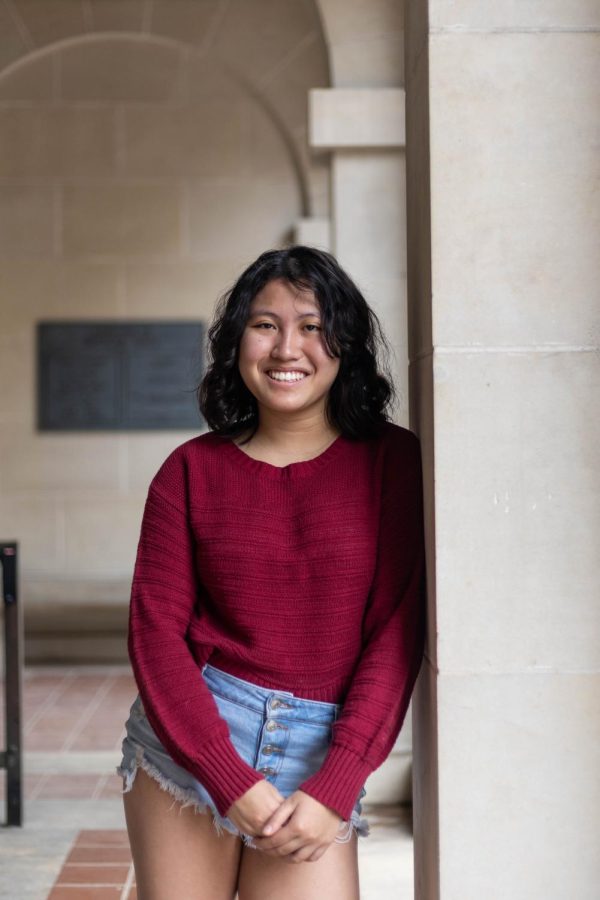Survivors, my platform is a space for you
March 23, 2022
Editor’s note: This article first appeared as part of the March 8 flipbook.
Editor’s note: Megan Tran ran unopposed and will be the next editor-in-chief of The Daily Texan. For this column, she was asked to present her platform and vision for the Texan.
Content Warning: This column contains discussion of sexual violence.
When I first applied to write for The Daily Texan’s opinion department, I only had one cause in mind: I wanted to advocate for survivors of sexual and interpersonal violence. Since then, I have written columns and contributed to editorials on a variety of issues, but I have never forgotten what initially drew me to the Texan.
Survivors, I want to listen and work with you. I cannot enact change on my own, and you have worked so hard to create movements and advocate for yourselves. Your stories and your work are wholly your own, and no one can take that away from you. As Editor-in-Chief, I intend to use the Texan’s platform to both uplift survivor voices and push for long-overdue changes to better support survivors on UT’s campus.
Amanda Garcia, Interpersonal Violence Prevention Coalition organizer and sociology sophomore, explained the importance of seeking intentional, meaningful change.
“I’m very happy to see that survivor justice is becoming more of a prominent conversation on campus … Unfortunately, with the amount of attention that sort of justice is getting, it’s also coupled with a lot of performative initiatives and false promises,” Garcia said. “As much as there is a culture shift, it has to be coupled with intention. At the center of it all (must be) accountability and dedication to doing the work, and it’s a lot, and it’s hard. It’s very personal for a lot of people, which makes it difficult, but that’s also what makes it necessary.”
Promises for sexual misconduct reform should never be hollow platform points meant to garner praise, nor should they be shallow attempts to placate justifiably angered students and activists. Lasting, concrete changes are needed to both support survivors and tackle the pervasiveness of sexual violence on college campuses.
On March 2, 2020, former UT President Gregory Fenves announced that he had accepted law firm Husch Blackwell’s first set of recommendations for sexual misconduct policy reform, and on July 8, 2020, UT President Jay Hartzell accepted the second set. These statements came after protests from student activists and organizers. Since then, we have yet to see the substantial changes that were promised. If progress has been made, UT has not communicated it.
While I understand that the COVID-19 pandemic has been undeniably difficult to navigate and has taken attention and resources away from other issues, survivors do not deserve to have their efforts disregarded and their voices sidelined. Accountability and reform are long-overdue, and we have not forgotten.
Those changes, however, do not begin and end with university administration. Greek life is rife with rape culture. Men who join fraternities are three times more likely to commit sexual assault than men who do not. Women in sororities are 75% more likely to be raped than other college women. The culture of Greek life allows sexual violence to perpetuate, but it is not the only one responsible. Any student organization that does not immediately address sexual misconduct allegations against their members — such as Tejas Club — has no place on this campus.
“At the end of the day, if you’re not holding someone accountable, you’re basically taking the side of the assaulter. This is not the way to stand with survivors,” said Sophie Snapp, president-elect of Not On My Campus and an environmental engineering freshman.
Survivors, The Daily Texan is a space for your voices. Change must be made, and I cannot do it without you. Progress is slow and frustrating, but ultimately, you will be the ones to make it happen.
“We’re still here,” said Grace Baldwin, international relations and global studies sophomore. “Listen to (survivors’) stories and share them and read them and be angry … One day, this will be something that we can talk about openly and feel okay with talking about openly. It won’t be something that’s so stigmatized and something that we whisper and feel shame about.”
Tran is a Plan II, English, and sociology sophomore from Houston, Texas.












